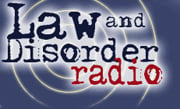Project Blueprint: Haiti
Haiti is a nation in crisis, spiraling out of control since last year’s assassination of its president, Jovenet Moise. The government has cratered, and 200 violent gangs have seized control. There’s no fuel, and food and water are hard to come by. Businesses and schools are shuttered and hospitals, banks, and grocery stores teeter on the brink of closure. Clean water is scarce, and Haiti faces another cholera outbreak. An estimated one million people are starving in the middle of Haiti’s biggest city. Kidnappings, human trafficking, homicides and sexual and gender-based violence are rampant.
Last week, the UN Security Council unanimously adopted a resolution demanding an immediate end to violence and criminal activity in Haiti. It calls for sanctions on groups and individuals threatening peace and stability in the impoverished nation. The sanctions resolution implicated Jimmy Barbecue Cherizier, whose gang has blockaded a central fuel terminal. Cherizier is a former police officer leading a group of gangs known as the G9 Family and Allies. He now faces asset freeze, an arms embargo and a travel ban.
Institute For Justice and Democracy In Haiti
Guest – Human rights attorney Brian Concannon, Executive Director of Project Blueprint, and the founder and former Executive Director of the Institute for Justice and Democracy in Haiti. Brian has been qualified as an expert witness on conditions in the country of Haiti in more than 40 cases in courts both in the United States and Canada.
—-
A Century of Repression: The Espionage Act and Freedom of the Press
For more than a century, the 1917 Espionage Act has been used by the United States government to target critics of its foreign and military policy. From suppressing criticism of U.S. participation in World War I to present-day attempts to silence whistleblowers, political dissidents and journalists who expose our nations war crimes, the Espionage Act is a dangerous weapon in the federal governments legal arsenal. It has been employed to limit freedom of speech, freedom of the press, and freedom of information.
In their new book, A Century of Repression: The Espionage Act and Freedom of the Press, Ralph Engelman and Carey Shenkman trace the use of the Espionage Act against Eugene Debs, Daniel Ellsberg, Edward Snowden, Chelsea Manning and Julian Assange, among others. During World Wars I and II, the Act was primarily directed at political opposition to government policies. During the Cold War, it was used to criminalize leaks, manipulate the flow of information, and mold public opinion. And during the War on Terror, the Act has been used as a means to combat digital disclosure and journalism.
Journalist Julian Assange, founder and publisher of WikiLeaks, is currently locked up in a maximum security prison in London while the Biden administration attempts to have him extradited to the United States to stand trial on Espionage Act charges that could result in 175 years in prison. The basis for the indictment against him is WikiLeaks revelation of U.S. war crimes in Iraq and Afghanistan.
Guest – Carey Shenkman, a constitutional lawyer and litigator focusing on freedom of expression, transparency and technology. He serves on the panel of experts at Columbia Universitys Global Freedom of Expression Program, and consults on media rights issues before the United Nations and around the world.



